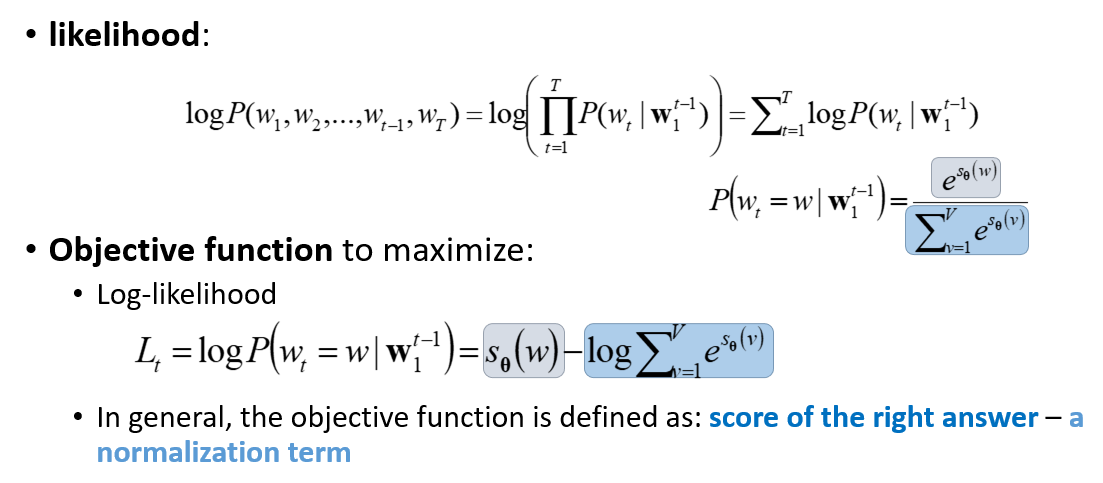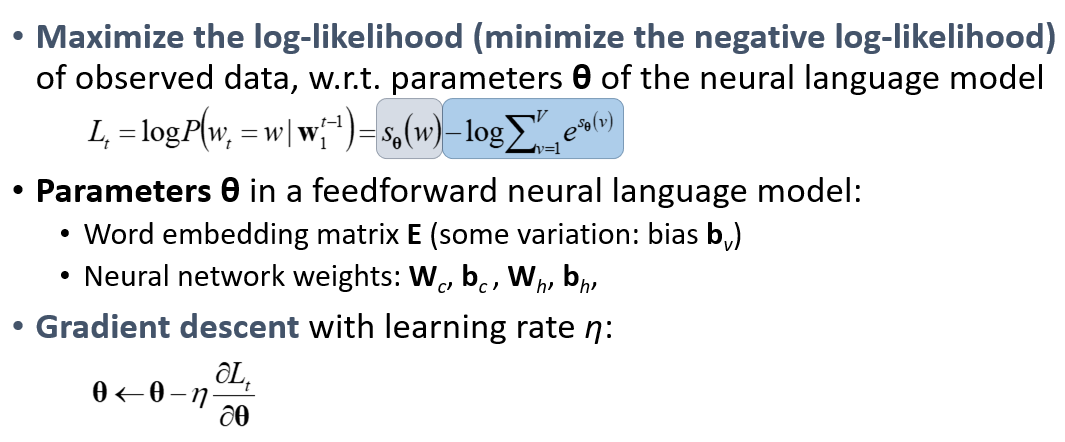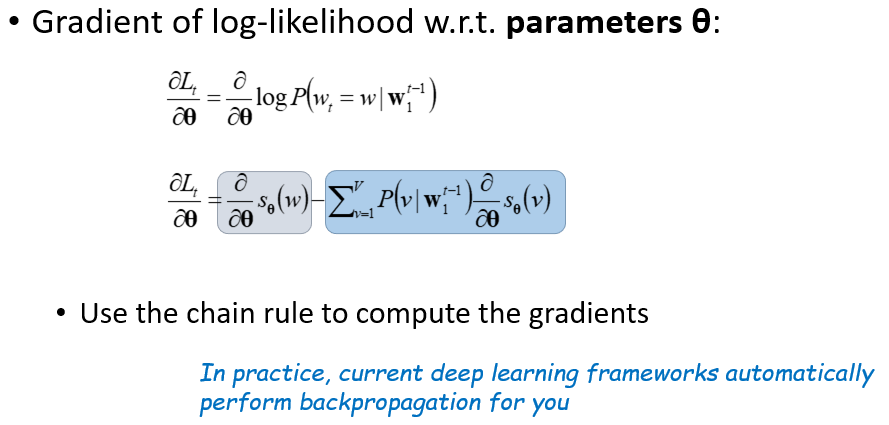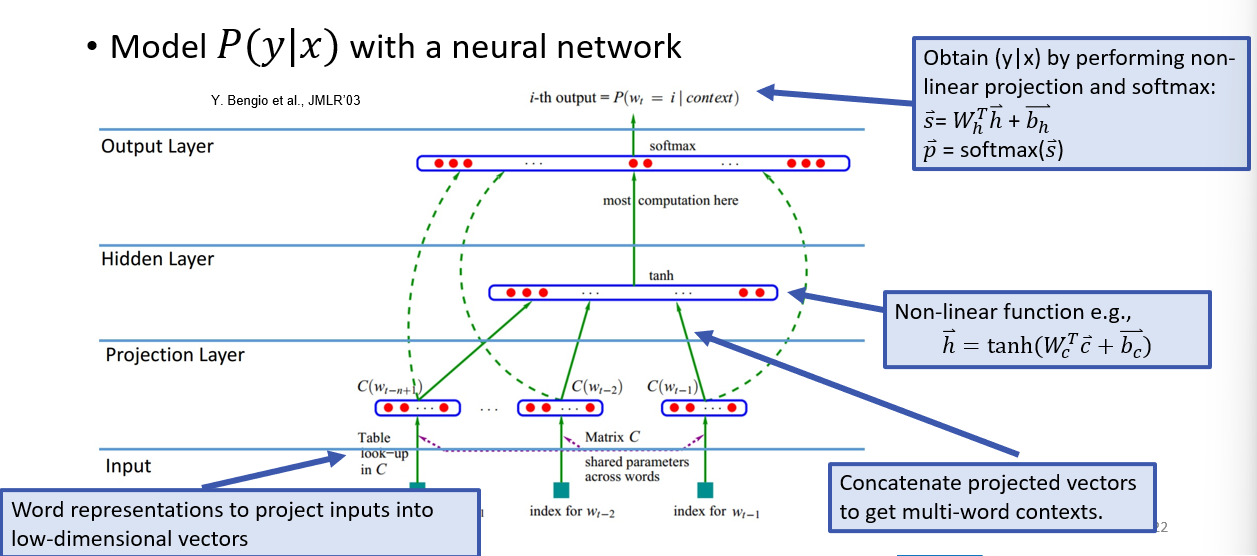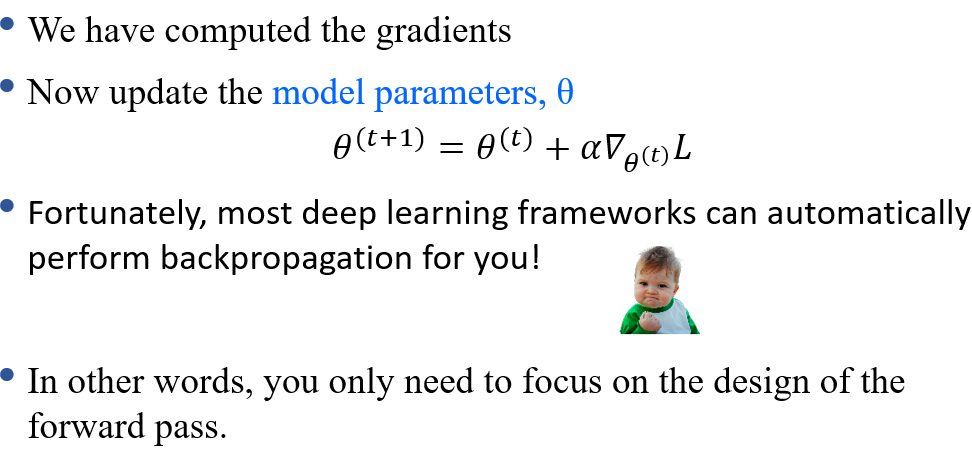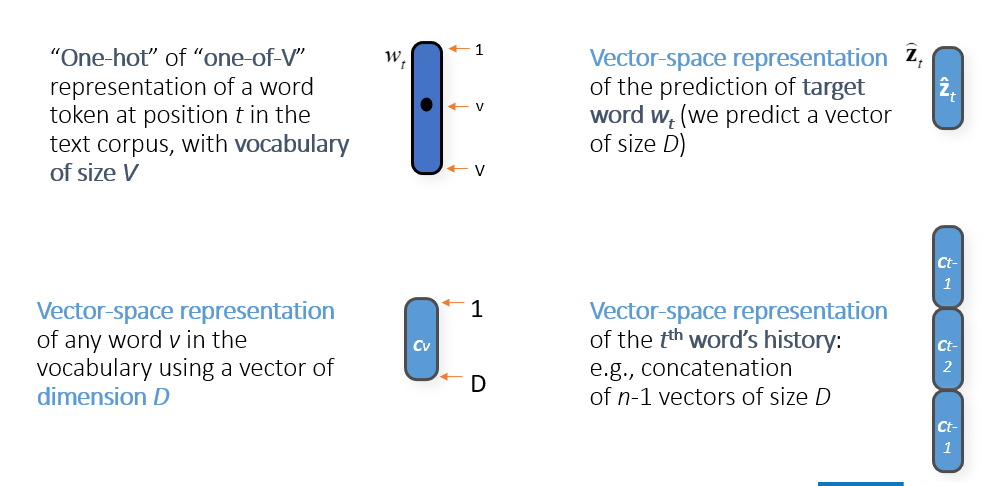7 - Log Linear and Neural LMs
ucla | CS 162 | 2024-02-06 12:24
Table of Contents
Log-Linear Language Models
we want to create a conditional distribution $p(y x) - we can make the conditional probability distribution wrt the weights as
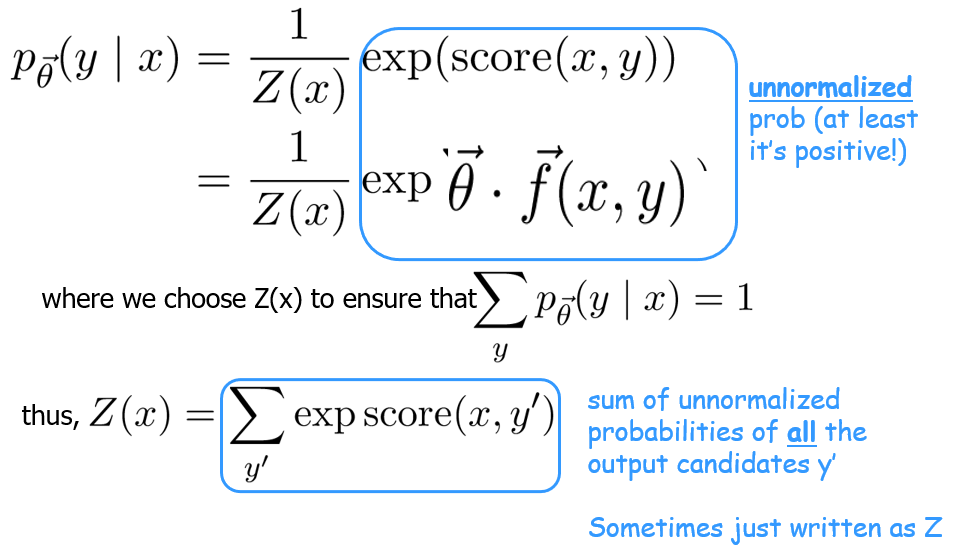
Training
given x_i)$$ - the thing we want to improve is make the prob dist approach the RHS
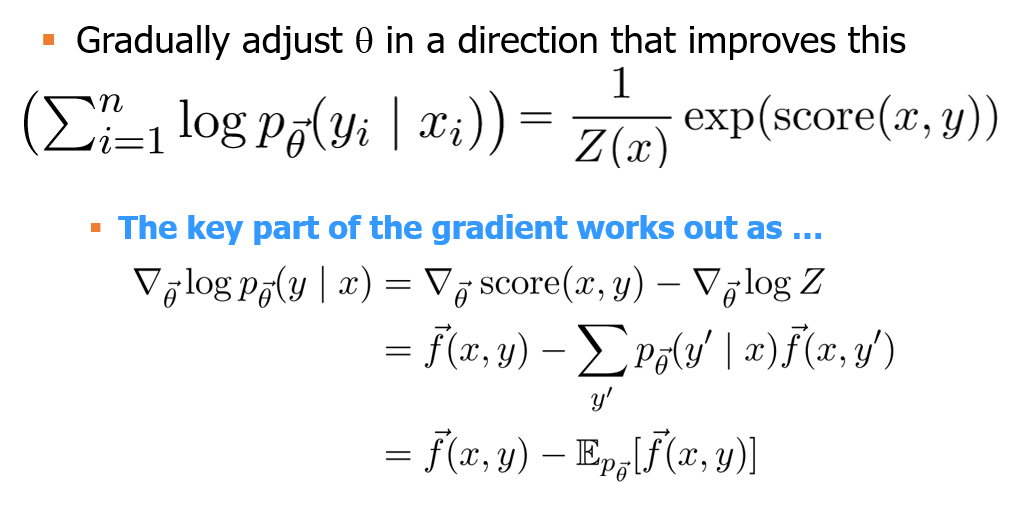
Cross Entropy
- same as neg log likelihood of our model
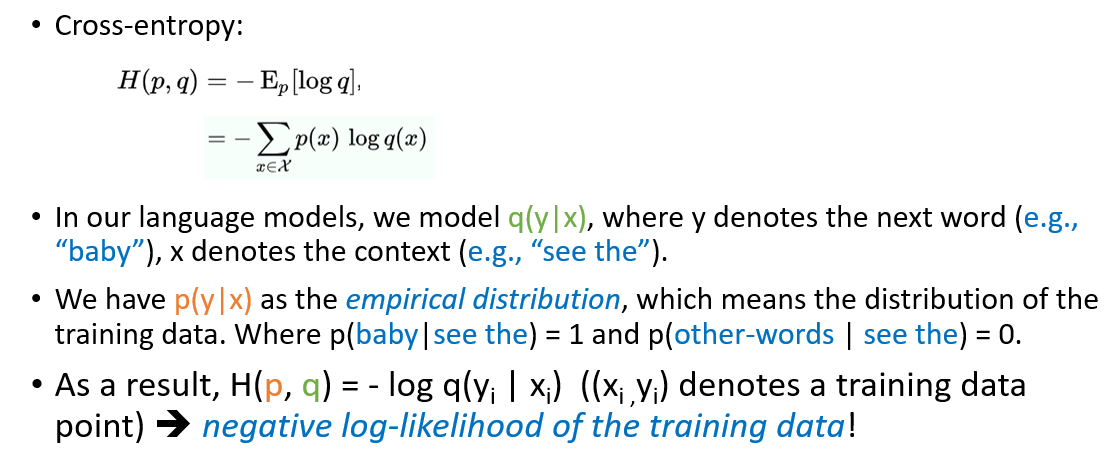
Generalization and OoD (unseen) samples
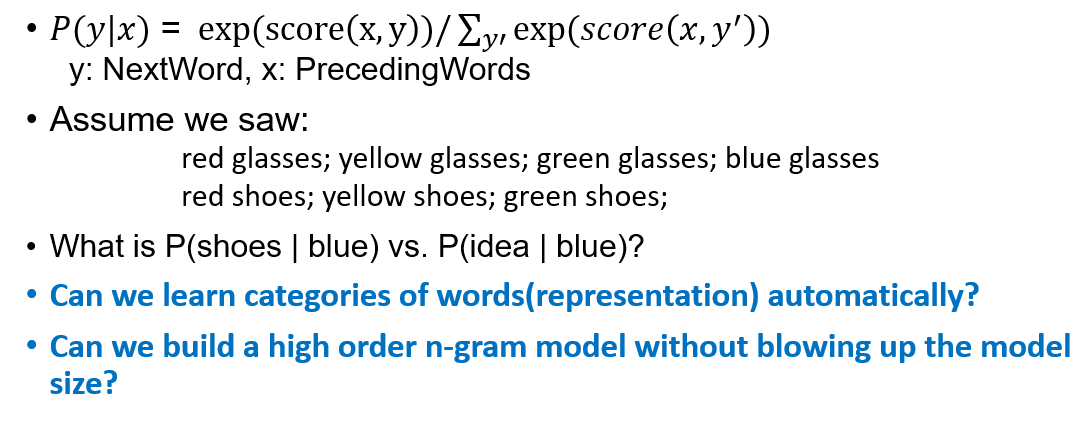
Neural LM
NN Review
- idea for NN for LMs - FFNN (3-MLP)
- forward pass
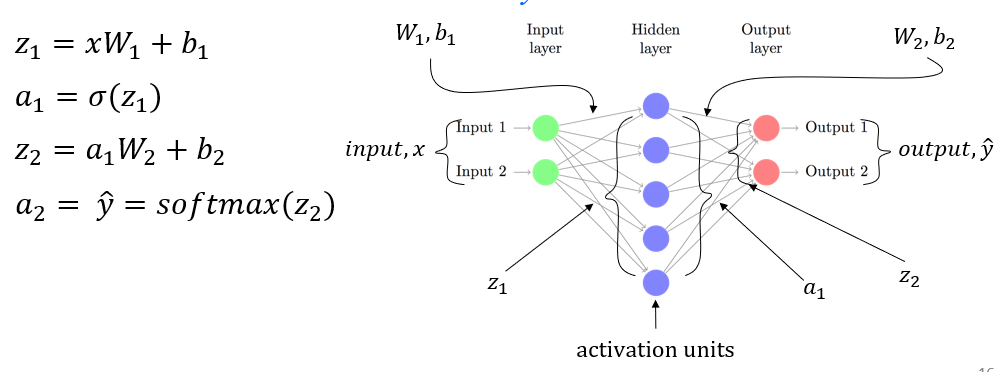
- backprop
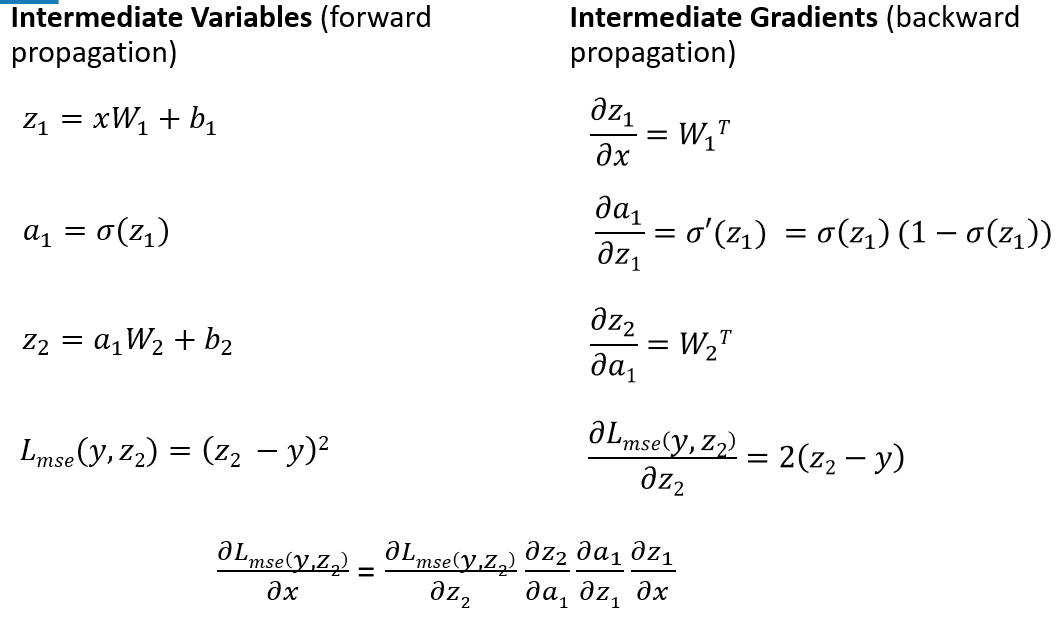
- weight update
Word Embeddings
- map tokens to dense low-dim vecs to create prob dists over
- these vector representations allow similarity comparison and analogies
- we construct LMs in such a way to learn the model and representations i.e., update embeddings along with the weights
Objective Function
- likelihood is softmax, we want to maximize softmax
